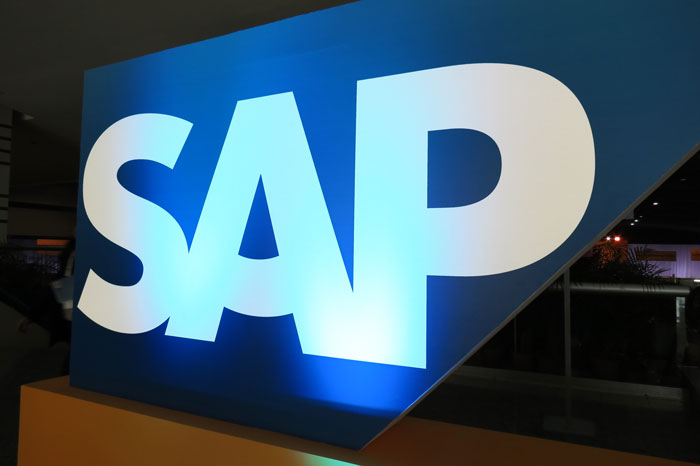Raising the U.S. flag over its headquarters, a red sandstone homage to a Swiss chalet, was a victory of sorts for Software AG of Germany last year.
In 2007 the company, the second-largest German software maker behind SAP, forked out more than €546 million, or $801 million, to buy WebMethods, a company based in Fairfax, Virginia, that specializes in business process management software.
The purchase was a convenient bookend for the first phase of Karl-Heinz Streibich’s tenure at the helm of Software AG, which is in a university town south of Frankfurt. Streibich took over six years ago amid declining sales, and his takeover of WebMethods confirmed the recovery of Software AG, analysts say, and its place in the expected consolidation of midsize software companies.
For now, though, Software AG is busy digesting its purchase. Integration of WebMethods – the name will live on as a product brand – is nearly complete, and the company is focused on internal growth, not acquisitions.
«Such big moves are imaginable but not concretely in the planning right now,» Streibich said during an interview.
Streibich, 55, can afford to bide his time more than most, not the least because his turnaround strategy has born ample fruit.
When he joined Software AG from T-Systems, the information technology division of Deutsche Telekom, in 2002, business at Software AG was cratering, with sales down 30 percent from the year before.
In 2007 it had sales of €621.3 million, with profit of €88.4 million. In the fourth quarter, 38 percent of its sales of €186.5 million came from WebMethods, reason enough for permanently planting the Stars and Stripes – previously a temporary fixture for visitors – in front of headquarters.
In addition, one of the largest German foundations, active in children’s issues in Germany and abroad, holds about 30 percent of the company’s shares, making it largely invulnerable to a takeover. That will ensure that when the time comes, Software AG is predator and not prey, Streibich said.
Iona, a small software maker listed in Ireland and the United States, said that it had received a takeover approach, without saying from whom. Streibich declined to comment on whether Software AG had been behind the approach, even as he acknowledged that consolidation was the wave of the future.
«You’ve still got a few smaller players out there who are struggling» and likely to be acquired, said Adam Wood, a software industry analyst at Exane BNP Paribas in London.
Streibich largely shrugged off the hotly debated question among software makers of whether the current economic downturn – a mix of financial market turbulence and a cooling of the real economy – would lead companies to reduce their spending on technology of all sorts.
Forrester Research has forecast that global spending on information technology, both goods and services, will grow 6 percent this year – to about $1.7 trillion – or half the rate of 2007. The prognosis follows a sunnier one it issued only a few months ago, before most economists began assuming there would be, or already was, a recession in the United States.
But Streibich said Software AG would meet its current profit targets and become a company with €1 billion in sales by 2010, a year earlier that it had expected.
He conceded that some clients might think twice about information technology spending in the current environment. «There is surely one or the other customer who is not so liquid and is postponing projects,» Streibich said.
But he stressed that presumptions of an impact on the real economy are premature. «It’s exclusively a crisis in finance,» Streibich said. «I don’t see the spillover into other branches.»
Enough clouds are gathering around the IT industry that some analysts are wary of this premise.
Cisco and Infineon, both hardware manufacturers, have said they see a slowdown, as have IBM and Microsoft, Wood pointed out.
«It’s highly unlikely that all this does not lead to a generalized slowdown in software spending» that would affect companies like Software AG, he said.
Analysts fear that the database business in particular is vulnerable to boom-and-bust cycles, but Streibich has an answer for that too.
Software AG’s two main businesses are database software for mainframe computers and another set of tools that help knit together software packages that they have acquired over the years.
Streibich said the database business is «horizontally and geographically diversified» enough that it can withstand a slowdown in scattered industries, or particular countries – including the United States – without collapsing.
Streibich also said he saw no end in sight for the severe shortage of information technology professionals that has gripped much of the European industry, though not – so far, he said – his own company.
Bitkom, the German IT trade association, has calculated that about 18,000 jobs are unfilled in the industry in Germany. Software AG is helping to train 2,000 students at universities and technical schools.
Streibich said the problem in Germany was probably underpinned by deep-seated social shifts that have tarnished the appeal of being an engineer.
A generation ago, when Software AG was founded in 1969, an engineer’s degree offered many Germans a virtually certain exit from the working or lower-middle class.
Measured against the well-educated society of today, Streibich pointed out, engineering is a much less prestigious degree.
«For a working-class family, that was social advancement,» Streibich said. «It is not anymore.»
Fuente: International Herald Tribune
















